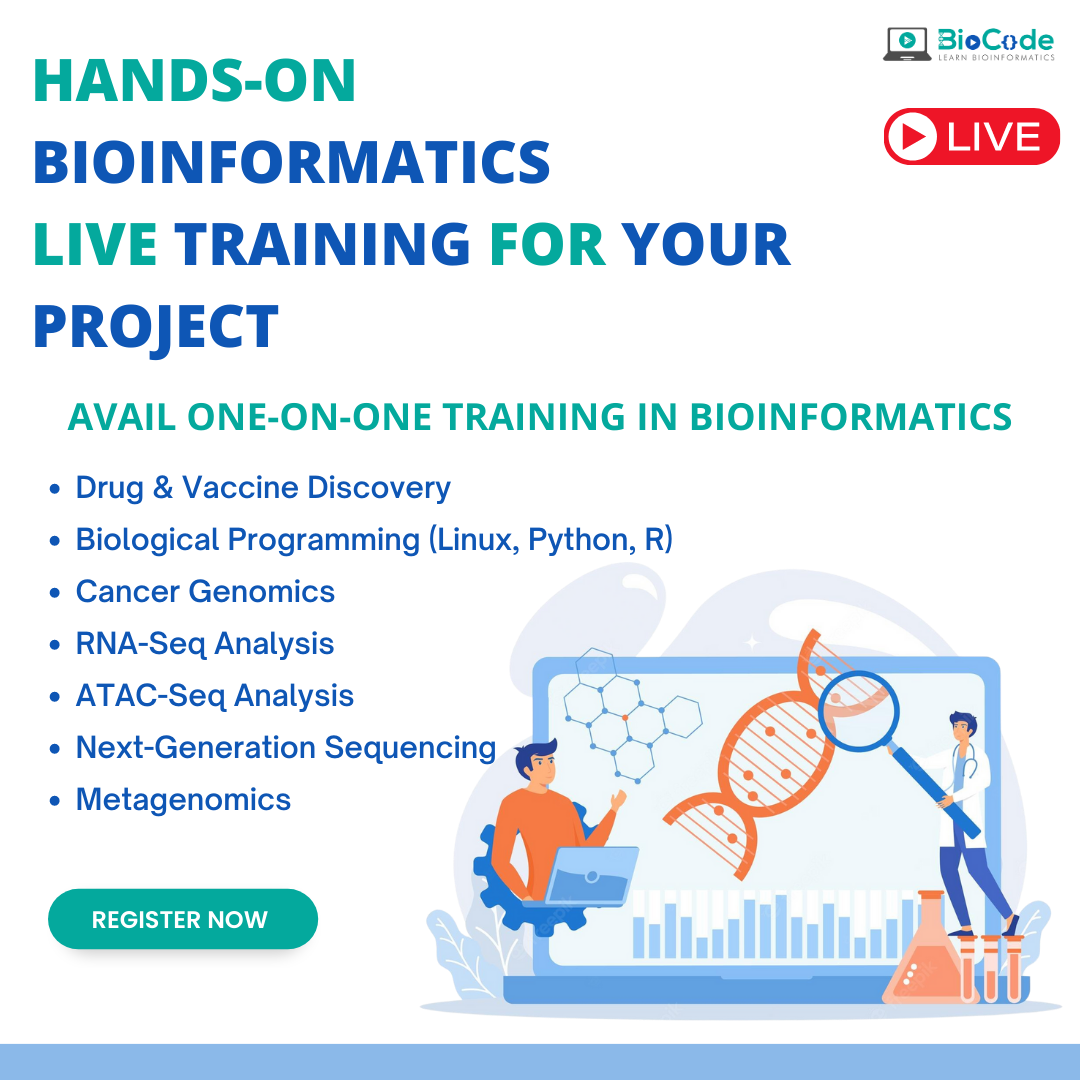What Does Bioinformatics Tutor Do?
Table of ContentsThe Best Strategy To Use For Bioinformatics TutorNot known Incorrect Statements About Bioinformatics Tutor The Single Strategy To Use For Bioinformatics TutorWhat Does Bioinformatics Tutor Mean?About Bioinformatics Tutor
Of the total participants associated with the training, 80% were students from public greater education and learning institutions, while the remaining 20% originated from exclusive establishments. To certify for a certificate of participation, students were called for to participate in at the very least 90% of the complete training hours. As a result of this need, an impressive 95% of the individuals effectively obtained their certifications, having not only met the minimum attendance standards however also finished all designated activities throughout the training.
During the height of the COVID-19 pandemic, especially between June and August 2020, the task group was charged with organizing specialized training in bioinformatics. This training was specifically focused on trainees from the research study group Nucleus for Study in Applied Computing at the Federal College of Pará (UFRA) The adaptation to remote knowing systems because of the pandemic produced a possibility to discover brand-new training techniques and electronic tools that enhanced both reach and efficiency.
To react to the expanding demand in the computing and life scientific researches areas, an advanced program was introduced in 2020 entitled Intro to Device Knowing. This course was developed to provide an obtainable yet detailed summary of Expert system methods, specifically as used in bioinformatics. The program was performed over three months, from October to December 2020, and was delivered totally online with the Google Meet platform. This digital layout allowed participation from pupils across Brazil, a lot of whom could not have had the chance to attend in-person sessions.
What Does Bioinformatics Tutor Mean?
Around 50% of the overall training hours were committed to useful activities where pupils developed smart versions and applications in a variety of clinical domain names, including genetics, molecular biology, and ecological data analysis. These systems allowed students to involve in real-time information manipulation, design training, and formula trial and error.
Sixty of them were connected with different higher education institutions in the state of Pará, while the remaining twenty came from institutions situated in 5 various other Brazilian states. By presenting Artificial Knowledge in a sensible and pertinent context, the initiative served to link the void in between concept and real-world application, providing trainees with a solid structure for future study or employment in the field.
The training initiative developed component of a broader academic outreach effort referred to as the Bioinformatics on the Roadway job. This project has, over the years, introduced dozens of students to the world of bioinformatics and computational biology. The events held under this umbrella initiative have actually happened throughout multiple regions and years, as summed up in Table 1 (Checklist of occasions, areas, years, and complete varieties of pupils and instructors)
One of the most amazing outcomes of the Bioinformatics on the Road campaign has been its payment to the growth of decentralized study groups. Several of these groups, at first united by their involvement in training events, have given that taken place to generate independent clinical research study in cooperation with local scholastic organizations. The training not only fostered clinical thinking within the context of bioinformatics but also sparked collective relationships that extended past the training setting. These collaborations have actually resulted in raised local scientific performance and contributed meaningfully to the development of the more comprehensive bioinformatics neighborhood in Brazil.
A Biased View of Bioinformatics Tutor
The exact same group, excluding IH and RR, additionally acted as tutors for the practical training modules. Financing for weblink the job was supplied with the grant 88887.200562/ 2018-00 from CAPES.
The Federal College of Pará's Workplace of Study (PROPESP/UFPA) additionally provided economic support, especially for the manufacturing of the last manuscript. The authors proclaim no economic or industrial problems of rate of interest that might have influenced the research study. All opinions and interpretations expressed in this post are solely those of the writers and do not necessarily reflect those of their particular institutions, the author, editors, or reviewers involved in the publication process.

Not known Facts About Bioinformatics Tutor
From a pedagogical perspective, the mentor method made use of in the training was intentionally interactive. Classes were conducted in a fashion that encouraged trainee involvement and conversation, exceeding memorizing memorization to explore just how ideas are developed, applied in life, and checked in academic settings. The educational ideology concentrated on nurturing both solid and battling trainees, providing customized assistance, and building self-confidence with continual mentorship and patience.

Each team, including around 36 individuals, was sustained by 3 coaches-- many of whom were postdoctoral scientists with specific proficiency. These advisors not just aided develop the team tasks however also promoted their execution, ensuring that each research question was both appropriately tough and pertinent. The objective was to provide a naturally realistic context that individuals could check out through flexible goals and accessibility to curated datasets.
For additional insights into the methodology and end results of this project-based knowing approach, visitors are routed to S1 Text, which includes comprehensive descriptions of the instructional structure, evaluation techniques, and task styles used in the training sessions.
Not known Details About Bioinformatics Tutor
Of the total amount participants navigate to these guys entailed in the training, 80% were trainees from public higher education institutions, while the remaining 20% came from private establishments. To certify for a certification of engagement, trainees were required to attend at least 90% of the overall training hours. Significantly, past the pupils who signed up in the training sessions, seven skilled teachers participated in delivering the programs, while 3 committed research professors collaborated the total training procedure. Roughly 50% of the overall training hours were devoted to practical activities where pupils built smart versions and applications in a range of scientific domains, consisting of genes, molecular biology, and ecological data analysis. The training not just fostered scientific reasoning within the context of bioinformatics but also sparked collective partnerships that prolonged beyond the training setting.